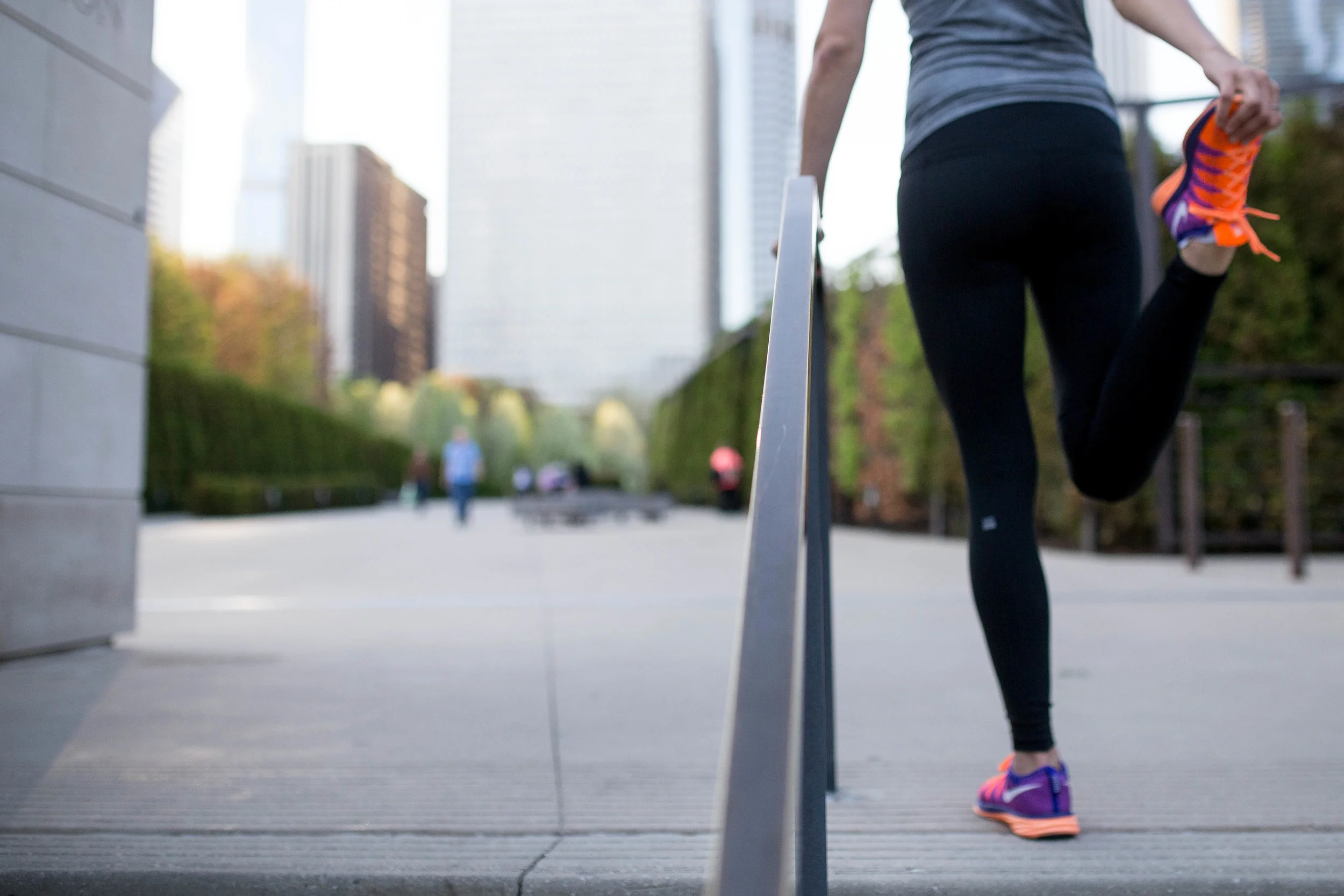Athletes tend to be pretty good-looking.
Admittedly, I joined the water polo team in college partially because I wanted to play water polo and partially because I was hoping to meet an attractive man wearing a speedo (spoiler alert: I did).
Being an athlete means that you are concerned about your body.
As a result, all sorts of body image issues may arise. Because you, dear reader, are likely an athlete, I have written this post to give you an excuse to feel like we're the same kind of person and I TOTALLY get you.
Here's why athletes have a tough time with body image:
1. Athletes like to look the part.
In most sports, you're hanging out with a bunch of people who work out a lot. Working out a lot tends to build more muscles and since muscles burn more calories than fat, these people tend to be more slender and defined (though not necessarily).
As a swimmer, you're always in a bathing suit. And when I say you're always in a bathing suit, I mean you're in a swimsuit ALL YEAR ROUND.
You've heard me talk about "bikini season" lots of times and if you haven't been living in a bunker for 14 years, then you know how crazy people are about swimsuit season: it's what summer is about.
So, if you're worried about how you look in a swimsuit during the summer and you decide you want to become a year around swimmer, you might be motivated to be on that diet wagon ALL YEAR ROUND.
This was certainly something I experienced as a swimmer. I was very aware of how I looked in my bathing suit and it was hard to not compare myself to others.
2. Athletes push past the pain.
As an athlete you learn very quickly that when it hurts, that's a good practice. I had one swim coach who once referred to difficult sets as "evoloutions."
And they burned and it hurt and I was gasping for breath, but it was those practices that got you to the next level. This is certainly the rhetoric to most Cinderella stories about Olympians and Olympic hopefuls. I mean have you seen the Under Armour shirt commercial with Michael phelps?
This can be a dangerous lesson to learn when it comes to dieting and listening to your hunger and fullness cues.
If you become really really good at working through the pain, you might miss the signal when your body is nutrient deficient and it is starting to eat itself away. This is actually a dangerous condition known as female athlete triad.
Or, alternatively, you might attempt to restrict food and end up eating a boatload of food because your body is really good at telling the brain to eat more when you're missing nutrients or calories. You might eat way past the point of fullness.
3. When you're not an athlete anymore, it's hard not to wish you still were.
I never really worried as a swimmer whether or not I was eating too much because I was always working so hard and burning so many calories.
When my swimming career was over, I remember thinking that I still wanted to eat the amount of food that I used to eat when I was fueling a competitive swim career.
Adjusting to not eating as much or spending as much time on my body was definitely difficult. It was also hard to watch the shape of my muscles change as I spent less time in the water.
It's often hard for athletes to differentiate between what is "normal" and what they were able to do before. It's hard to see what is important for everyday fitness versus what's important to serious conditioning. As a former athlete, you feel the difference in your everyday life from the food you eat to how breathy you are after climbing a flight of stairs. Or at least it was for me.
If you're not careful, you'll always be comparing yourself to your past athletic self in peak season.
4. Athletes are competitive.
This one is the real zinger. Athletes are famously competitive. It's what differentiates an enthusiast from a participant. If you don't compete, you're not really an athlete.
Competing often means comparing oneself to others. That's how you win or lose. In swimming, I could see clearly where I stood compared to other people. My time fit in an exact place in the lineup and I was inspired to improve by the people who beat me.
This can be a dangerous game when it comes to your body. It meant that I used to compare my body to women who were thinner than me or had the body that I wanted. I used to think, if they can have it, why can't I?
Yuck. Of course that's not really how it works when it comes to your body weight. You can't always train your way to looking like Kate Upton.
After an athletic career, it's important to channel all this competitive energy into a healthy place:
Set your own goals. Be proud of what you look like individually. Listen to your body. Eat when you're hungry. Stop when you're full. Love the way you are now. Take care of your body now. BE yourself.
After all, there's a reason you quit in the first place.
If you're a former athlete, you don't have to keep seeing the world this way.
Tune in next week where I tell you why being an athlete could save your body image...


